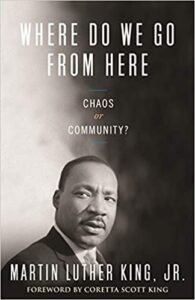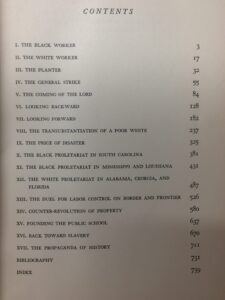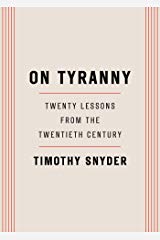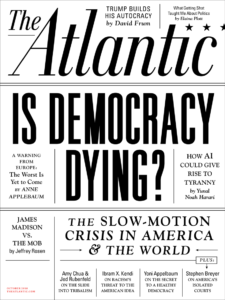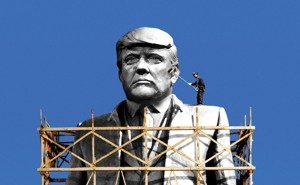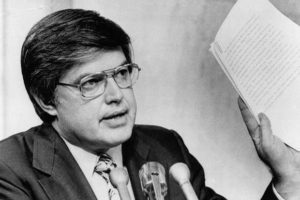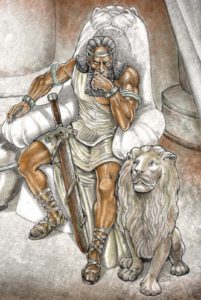tyranny
Chaos or Community?
January 9, 2021Martin Luther King asked us this question in 1967, not long before his assassination. After witnessing January 6th, we ask again. We are in a pivotal moment, again, in this country, and now, exacerbating the civil unrest, is a radicalized population with instantaneous virtual connection and unmitigated amounts of disinformation and conspiracy. For those engaged in the disinformation exchange, these are not theories, it is reality.
Social media platforms are suspending, and they’re too late.
Whistleblower Christopher Wylie (think Cambridge Analytica and pink hair):
Platforms like Facebook have been responsible for digitally segregating Americans for years. To move forward, we need to apply de-segregation principles to social media. That starts with regulating Facebook’s underlying digital architecture and design.
Truly, though, does anyone see them doing this anytime soon? No. Profit and power is their mantra.
A recommended read essay from author, and Yale history professor Timothy Snyder. His book, On Tyranny [2017], needs to be on your bookshelf.
Here’s the link to his essay published today in The New York Times Magazine.
https://www.nytimes.com/2021/01/09/magazine/trump-coup.html?smid=tw-share
Post-truth is pre-fascism, and Trump has been our post-truth president. When we give up on truth, we concede power to those with the wealth and charisma to create spectacle in its place. Without agreement about some basic facts, citizens cannot form the civil society that would allow them to defend themselves. If we lose the institutions that produce facts that are pertinent to us, then we tend to wallow in attractive abstractions and fictions. Truth defends itself particularly poorly when there is not very much of it around, and the era of Trump — like the era of Vladimir Putin in Russia — is one of the decline of local news. Social media is no substitute: It supercharges the mental habits by which we seek emotional stimulation and comfort, which means losing the distinction between what feels true and what actually is true.
[…]
My own view is that greater knowledge of the past, fascist or otherwise, allows us to notice and conceptualize elements of the present that we might otherwise disregard and to think more broadly about future possibilities. It was clear to me in October that Trump’s behavior presaged a coup, and I said so in print; this is not because the present repeats the past, but because the past enlightens the present.
Thanks to technological capacity and personal talent, Donald Trump lied at a pace perhaps unmatched by any other leader in history.
[…]
When Senator Ted Cruz announced his intention to challenge the Electoral College vote, he invoked the Compromise of 1877, which resolved the presidential election of 1876. Commentators pointed out that this was no relevant precedent, since back then there really were serious voter irregularities and there really was a stalemate in Congress. For African-Americans, however, the seemingly gratuitous reference led somewhere else. The Compromise of 1877 — in which Rutherford B. Hayes would have the presidency, provided that he withdrew federal power from the South — was the very arrangement whereby African-Americans were driven from voting booths for the better part of a century. It was effectively the end of Reconstruction, the beginning of segregation, legal discrimination and Jim Crow. It is the original sin of American history in the post-slavery era, our closest brush with fascism so far.
If the reference seemed distant when Ted Cruz and 10 senatorial colleagues released their statement on Jan. 2, it was brought very close four days later, when Confederate flags were paraded through the Capitol.
W.E.B. Du Boise, 1st edition, 1935, Beinecke Library:
The lie outlasts the liar. The idea that Germany lost the First World War in 1918 because of a Jewish “stab in the back” was 15 years old when Hitler came to power. How will Trump’s myth of victimhood function in American life 15 years from now? And to whose benefit?
[…]
If Trump remains present in American political life, he will surely repeat his big lie incessantly.
[…]
America will not survive the big lie just because a liar is separated from power. It will need a thoughtful repluralization of media and a commitment to facts as a public good.
From journalist Maria Ressa:
What happened Jan 6 in the US is a logical consequence of the radicalization, the “seeding & spread of conspiracy theories enabled by social media. It’s time to demand accountability. (Facebook is a behavior modification system.)”
Washington Post
A radicalized Air Force vet, Obama supporter, “and after years of personal travails, Ashli Babbitt believed she had found a cause that gave her life purpose. Within hours, that cause would bring her life to a violent end.”
https://www.washingtonpost.com/dc-md-va/2021/01/09/ashli-babbitt-capitol-shooting-trump-qanon/
ProPublica:
‘Some far-right activists are already calling for retribution over the death of Ashli Babbitt. “We’re not putting up with this tyrannical rule. We will return on Jan 19th, carrying our weapons in numbers that no standing army or police agency can match.”
https://www.propublica.org/article/several-well-known-hate-groups-identified-at-capitol-riot
From Jane Mayer at The New Yorker:
Bobby Pickles, a purveyor of far-right T-shirts, joined the horde of balding dudes in dad jeans at the Capitol, because Donald Trump, he says, is “like punk rock.”
He explained that after his father died, in 2015, he sought out new male camaraderie. The Proud Boys filled a vacuum. He claims to have joined not because they are a hate group (as designated by the Southern Poverty Law Center) but because “they were seeking something.” He said, “I came to the realization that Trump was awesome, and that I had been brainwashed.” From right-wing podcasts and YouTube, he said, he has learned that “the pandemic is a scam,” and that “we live in an inverted dictatorship run by the Deep State and globalists.”
“We couldn’t really see the President, we were listening on our phones & when we heard him say, ‘Go to the Capitol,’ we all were, like, ‘Yeah!’ So directed, Pickles & his group began marching. “Things are escalating. I hate to see what happens next.”
https://www.newyorker.com/magazine/2021/01/18/a-palm-beach-proud-boy-at-the-putsch
The Guardian
From Sadiq Khan, the mayor of London:
The storming of the Capitol in Washington is a wake-up call for states around the world, writes the mayor of London
he events at the Capitol building in Washington were shocking, but sadly not that surprising. Yes, President Donald Trump incited a fascist mob to try to violently overthrow the legitimate outcome of a democratic election – but this was the tragic yet inevitable consequence of the far-right movement the president has built and fostered over the last five years.
Trump pitted his own citizens against each other. He preyed on genuine economic suffering. He lied to stoke fear of those who are different. He denied basic scientific facts about Covid-19 and refused to act to save lives and jobs. He separated children from their parents. He used people’s religion as a reason to ban them from coming to the US. He gave equivalence to far-right racists and anti-racist protesters. He denigrated women and denied many the right to choose what they do with their body.
And he also undermined and delegitimised the fundamental pillars of democracy – equality under the law, the freedom of the press, an independent judicial system and, ultimately, even elections themselves.
ragically, the warnings were deliberately ignored by too many supposedly mainstream politicians, commentators and observers around the world, including here in the UK. Some greedily eyed an opportunity for their own advancement, which they valued more than the long-term health of democracy. Others were simply too scared of the consequences of doing the right thing and challenging the ugly new populist and nativist political movements that Trump spawned.
Donald Trump’s defeat is not the end of his brand of far-right politics. More than 74 million voted for him in November. Viktor Orbán in Hungary, Jair Bolsonaro in Brazil, Recep Tayyip Erdoğan in Turkey, Matteo Salvini in Italy, Andrzej Duda in Poland and others are from the same mould. As are a growing group on the fringes of the Brexit movement.
People on both the left and right must show no hesitation in challenging racism and discrimination, be fearless in speaking up to protect all minority groups while promoting equality and focus relentlessly on tackling the economic inequalities and lack of opportunities that create a fertile breeding ground for the far-right – challenges that will only get harder after the pandemic.
We should tell truly inclusive patriotic stories about our national identity that show the genuine diversity of both our history and modern societies. And we need to be clear that compromising with those on the other side of the political aisle is not always a bad thing. Sometimes it is essential for the health of democracy.
Full piece:
Love is Everywhere banners placed in Downtown Boise, Idaho.
The Guardian also published an opinion piece by Daniel Ellsberg. It’s important read, especially if Donald Trump is allowed to stay in office prior to Joe Biden’s inauguration.
“I will always regret that I did not do more to stop war with Vietnam. Now, I am calling on whistleblowers to step up and expose Trump’s plans.”
Daniel Ellsberg was the whistleblower who leaked the Pentagon Papers, which revealed the US government had lied to the American public about the Vietnam war.
resident Trump’s incitement of criminal mob violence and occupation of the Capitol makes clear there is no limitation whatever on the abuse of power he may commit in the next two weeks he remains in office. Outrageous as his incendiary performance was on Wednesday, I fear he may incite something far more dangerous in the next few days: his long-desired war with Iran.
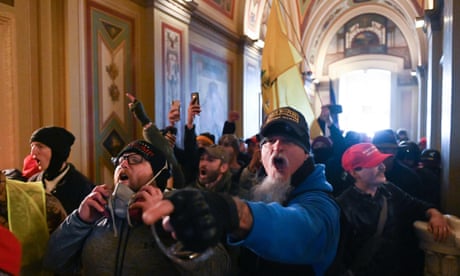
Could he possibly be so delusional as to imagine that such a war would be in the interests of the nation or region or even his own short-term interests? His behavior and evident state of mind this week and over the last two months answers that question.
The dispatch this week of B-52’s nonstop round-trip from North Dakota to the Iranian coast – the fourth such flight in seven weeks, one at year’s end – along with his build-up of US forces in the area, is a warning not only to Iran but to us.
In mid-November, as these flights began, the president had to be dissuaded at the highest levels from directing an unprovoked attack on Iran nuclear facilities. But an attack “provoked” by Iran (or by militias in Iraq aligned with Iran) was not ruled out.
[…]
I have little doubt that such contingency planning, directed by the Oval Office, for provoking, if necessary, an excuse for attacking Iran while this administration is still in office exists right now, in safes and computers in the Pentagon, CIA and the White House. That means there are officials in those agencies – perhaps one sitting at my old desk in the Pentagon – who have seen on their secure computer screens highly classified recommendations exactly like the McNaughton and Bundy memos that came across my desk in September 1964.
[…]
I am urging courageous whistleblowing today, this week, not months or years from now, after bombs have begun falling. It could be the most patriotic act of a lifetime.
https://www.theguardian.com/commentisfree/2021/jan/08/donald-trump-war-iran-tehran-daniel-ellsberg
In memoriam.
USA Today
Brian D. Sicknick, 42, the youngest of three sons, was from South River, New Jersey. He graduated in 1997 from Middlesex County Technical Vocational High School and joined the New Jersey Air National Guard that year.
Sicknick deployed to Saudi Arabia in 1999 in support of Operation Southern Watch. After the 9/11 terrorist attacks, he served in Kyrgyzstan in support of the war in Afghanistan. While stateside, Sicknick served in the 108th Air Refueling Wing out of Joint Base McGuire-Dix-Lakehurst in New Jersey, his brother, Ken Sicknick, said.
He was honorably discharged in 2003, according to Lt. Col. Barbara Brown, a spokeswoman for the New Jersey National Guard.
Sicknick “wanted to be a police officer his entire life,” Ken Sicknick said. He “served his country honorably” and made his family “very proud,” Sicknicksaid. “Brian is a hero and that is what we would like people to remember.”
Sicknick died “due to injuries sustained while on duty,” U.S. Capitol Police said in a statement. On Wednesday, he “was injured while physically engaging with protesters,” police said. He returned to his division office and collapsed, then was taken to a local hospital where he died around 9:30 p.m. Thursday.
Sicknick was hit in the head with a fire extinguisher, according to two law enforcement officials who spoke to the Associated Press.
The murder investigation begins.
Five people lost their lives, countless others were injured, all directly related to January 6th, 2021.
…search for reason and truth.
September 29, 2020“Where-ever
law
ends,
tyranny
begins.”
-John Locke, 1689
We have been naive as a country not to believe him.
February 13, 2020He said he would destroy the institutions, and he is.
“Democracy dies in darkness.”
“Post-truth is pre-fascism.”
―
“The United States is so powerful that the only country capable of destroying her might be the United States herself, which means that the ultimate terrorist strategy would be to just leave the country along. That way, America’s ugliest partisan tendencies could emerge unimpeded by the unifying effects of war.”
-Sebastian Junger, On Homecoming and Belonging
Trump seeks to bend the executive branch as part of impeachment vendetta
“I’ve never seen so many prosecutors, including those who aren’t political or those who haven’t been following this situation closely, go to red alert so quickly,” said Joyce White Vance, a former U.S. attorney in the Obama administration. “The reason is this: If a president can meddle in a criminal case to help a friend, then there’s nothing that keeps him from meddling to harm someone he thinks is his enemy. That means that a president is fully above the law in the most dangerous kind of way. This is how democracies die.”
“Now he understands how to use the full powers of the presidency. The pearl-clutchers better get used to it.” – Former chief strategist Stephen K. Bannon
November 10, 2016:
Autocracy: Rules for Survival
https://www.nybooks.com/daily/2016/11/10/trump-election-autocracy-rules-for-survival/
“Thank you, my friends. Thank you. Thank you. We have lost. We have lost, and this is the last day of my political career, so I will say what must be said. We are standing at the edge of the abyss. Our political system, our society, our country itself are in greater danger than at any time in the last century and a half. The president-elect has made his intentions clear, and it would be immoral to pretend otherwise. We must band together right now to defend the laws, the institutions, and the ideals on which our country is based.”
That, or something like that, is what Hillary Clinton should have said on Wednesday. Instead, she said, resignedly,
We must accept this result and then look to the future. Donald Trump is going to be our president. We owe him an open mind and the chance to lead. Our constitutional democracy enshrines the peaceful transfer of power. We don’t just respect that. We cherish it. It also enshrines the rule of law; the principle [that] we are all equal in rights and dignity; freedom of worship and expression. We respect and cherish these values, too, and we must defend them.
Hours later, President Barack Obama was even more conciliatory:
We are now all rooting for his success in uniting and leading the country. The peaceful transition of power is one of the hallmarks of our democracy. And over the next few months, we are going to show that to the world….We have to remember that we’re actually all on one team.
[…]
The second falsehood is the pretense that America is starting from scratch and its president-elect is a tabula rasa. Or we are: “we owe him an open mind.” It was as though Donald Trump had not, in the course of his campaign, promised to deport US citizens, promised to create a system of surveillance targeted specifically at Muslim Americans, promised to build a wall on the border with Mexico, advocated war crimes, endorsed torture, and repeatedly threatened to jail Hillary Clinton herself. It was as though those statements and many more could be written off as so much campaign hyperbole and now that the campaign was over, Trump would be eager to become a regular, rule-abiding politician of the pre-Trump era.
Rule #1: Believe the autocrat. He means what he says. Whenever you find yourself thinking, or hear others claiming, that he is exaggerating, that is our innate tendency to reach for a rationalization. This will happen often: humans seem to have evolved to practice denial when confronted publicly with the unacceptable. Back in the 1930s, The New York Times assured its readers that Hitler’s anti-Semitism was all posture. More recently, the same newspaper made a telling choice between two statements made by Putin’s press secretary Dmitry Peskov following a police crackdown on protesters in Moscow: “The police acted mildly—I would have liked them to act more harshly” rather than those protesters’ “liver should have been spread all over the pavement.” Perhaps the journalists could not believe their ears. But they should—both in the Russian case, and in the American one. For all the admiration Trump has expressed for Putin, the two men are very different; if anything, there is even more reason to listen to everything Trump has said. He has no political establishment into which to fold himself following the campaign, and therefore no reason to shed his campaign rhetoric. On the contrary: it is now the establishment that is rushing to accommodate him—from the president, who met with him at the White House on Thursday, to the leaders of the Republican Party, who are discarding their long-held scruples to embrace his radical positions.
Rule #3: Institutions will not save you. It took Putin a year to take over the Russian media and four years to dismantle its electoral system; the judiciary collapsed unnoticed. The capture of institutions in Turkey has been carried out even faster, by a man once celebrated as the democrat to lead Turkey into the EU. Poland has in less than a year undone half of a quarter century’s accomplishments in building a constitutional democracy.
Of course, the United States has much stronger institutions than Germany did in the 1930s, or Russia does today. Both Clinton and Obama in their speeches stressed the importance and strength of these institutions. The problem, however, is that many of these institutions are enshrined in political culture rather than in law, and all of them—including the ones enshrined in law—depend on the good faith of all actors to fulfill their purpose and uphold the Constitution.
Rule #6: Remember the future. Nothing lasts forever. Donald Trump certainly will not, and Trumpism, to the extent that it is centered on Trump’s persona, will not either. Failure to imagine the future may have lost the Democrats this election. They offered no vision of the future to counterbalance Trump’s all-too-familiar white-populist vision of an imaginary past. They had also long ignored the strange and outdated institutions of American democracy that call out for reform—like the electoral college, which has now cost the Democratic Party two elections in which Republicans won with the minority of the popular vote. That should not be normal. But resistance—stubborn, uncompromising, outraged—should be.
“The Founding Fathers tried to protect us from the threat they knew, the tyranny that overcame ancient democracy. Today, our political order faces new threats, not unlike the totalitarianism of the twentieth century. We are no wiser than the Europeans who saw democracy yield to fascism, Nazism, or communism. Our one advantage is that we might learn from their experience.
On Tyranny is a call to arms and a guide to resistance, with invaluable ideas for how we can preserve our freedoms in the uncertain years to come.”
“The president is a nationalist, which is not at all the same thing as a patriot. A nationalist encourages us to be our worst, and then tells us that we are the best. A nationalist, “although endlessly brooding on power, victory, defeat, revenge,” wrote Orwell, tends to be “uninterested in what happens in the real world.” Nationalism is relativist, since the only truth is the resentment we feel when we contemplate others. As the novelist Danilo Kiš put it, nationalism “has no universal values, aesthetic or ethical.” A patriot, by contrast, wants the nation to live up to its ideals, which means asking us to be our best selves. A patriot must be concerned with the real world, which is the only place where his country can be loved and sustained. A patriot has universal values, standards by which he judges his nation, always wishing it well—and wishing that it would do better. Democracy”
“A nationalist will say that “it can’t happen here,” which is the first step toward disaster. A patriot says that it could happen here, but that we will stop it.”
“Modern tyranny is terror management. When the terrorist attack comes, remember that authoritarians exploit such events in order to consolidate power. The sudden disaster that requires the end of checks and balances, the dissolution of opposition parties, the suspension of freedom of expression, the right to a fair trial, and so on, is the oldest trick in the Hitlerian book. Do not fall for it.”
“The mistake is to assume that rulers who came to power through institutions cannot change or destroy those very institutions—even when that is exactly what they have announced that they will do.”
“More than half a century ago, the classic novels of totalitarianism warned of the domination of screens, the suppression of books, the narrowing of vocabularies, and the associated difficulties of thought. In Ray Bradbury’s Fahrenheit 451, published in 1953, firemen find and burn books while most citizens watch interactive television. In George Orwell’s 1984, published in 1949, books are banned and television is two-way, allowing the government to observe citizens at all times. In 1984, the language of visual media is highly constrained, to starve the public of the concepts needed to think about the present, remember the past, and consider the future. One of the regime’s projects is to limit the language further by eliminating ever more words with each edition of the official dictionary.”
“You submit to tyranny when you renounce the difference between what you want to hear and what is actually the case.”
Essential reading.
September 21, 2018Cover to cover The Atlantic’s October issue is essential reading from some of the most varied minds in our country today. They were invited to explore the premise of democracy’s demise. Topics include autocracy, tribalism, James Madison’s ‘Madisonian mob factions’, tyranny, and America’s courts by writers Anne Applebaum, Supreme Court Justice Stephen Breyer, Jeff Rosen, David Frum, Amy Chua, and others. The links are pinned below.
A note from The Atlantic:
Though these ills can be seen most plainly in the style and behavior of a growing number of political leaders worldwide, their sources run deeper than that. The aim of this package is to diagnose their serenity and root causes.
Some of these causes are universal; some are unique to the United States. The essays are grouped to reflect this distinction, and then to consider solutions.
Sprinkled throughout are brief warnings about risks to democracy from The Atlantic’s archives–some prescient, some misplaced, and many all too relevant today.
These are some of the headlines, stories, and links.
Losing the Democratic Habit
Yoni Appelbaum
Americans once learned self-governance by practicing it constantly–in lodge halls, neighborhood associations, and labor unions. As participation in these institutions had dwindled, so had public faith in democracy. To restore it, we must return democratic practices to everyday life.
https://www.theatlantic.com/magazine/archive/2018/10/losing-the-democratic-habit/568336/
The Threat of Tribalism
Amy Chua & Red Rubenfeld
The constitution once united a diverse country under a banner of ideas. But partisanship has turned Americans against one another–and against the principles enshrined in our founding document.
https://www.theatlantic.com/magazine/archive/2018/10/losing-the-democratic-habit/568336/
Madison vs. The Mob
Jeffrey Rosen
The founders designed a government that would be insulted from the heat of popular sentiment, but they didn’t anticipate the unbridled passions of the digital age. Here’s how the constitutional order can survive.
https://www.theatlantic.com/magazine/archive/2018/10/james-madison-mob-rule/568351/
America’s Courts Can’t Ignore the World
Supreme Court Justice Stephen Breyer
The U.S. Constitution is an American document. And American law should look exclusively to American precedents. Right? Not so, a supreme Court Justice says. That approach sounds good in theory, but the laws of other countries have a bearing on our own–and the highest court in the land needs to take heed.
https://www.theatlantic.com/magazine/archive/2018/10/james-madison-mob-rule/568351/
Building an Autocracy
David Frum
Will American democracy survive DT? And will the midterms matter?
https://www.theatlantic.com/magazine/archive/2018/10/building-an-autocracy/568282/
—
Link to The Atlantic October issue:
https://www.theatlantic.com/magazine/toc/2018/10/
1975
July 13, 2018“If this government ever became a tyranny there would be no place to hide and no way to fight back because the most careful effort to combine together in resistance to the government—no matter how privately it was done is within the reach of the government. We must see to it […] that we never cross over that abyss. That’s the abyss from which there is no return.”
Former Idaho Governor & Senator Frank Church
Gilgamesh ’45’
February 19, 2017In the Assyrian tale of Gilgamesh, over seven thousand years old, the lost and empty king doesn’t listen to the pain in his heart and so mistakenly declares war on Nature, projecting his pain as something to be conquered in the world.
How many times do we project our pain onto the world, rather than face the emptiness in our heart? How many times have we all been given a sign of what might help us find our way only to smash the sign, out of grief, impatience, or anger?
Projecting our pain, grief, impatience, and anger on others, abdicating our gifts to please a loved one, rejecting new learning because it challenges what is familiar, exiling others because they threaten our position or identity, and denying difficulty in hopes that it will go away – – these are all form of not listening that can undermine our aliveness in any given moment.
-Mark Nepo
Washington Post
All would be well, he said, so long as the people made sure always to elect political leaders who were “wise and good.”
By the time we reach ancient Greece, philosophers like Plato start to offer formal definitions of the tyrannical soul, and the picture is one of the person who defrauds freely, takes violently, lies consistently, robs and kills. Think of ’45’ saying last year about terrorism suspects, “You have to take out their families.” Think of his remark, “I could stand in the middle of Fifth Avenue and shoot somebody, and I wouldn’t lose any voters.”
For many years, I’ve taught Plato’s “Gorgias” and “Republic,” where the tyrannical soul is described. Never did I think we would have a walking, talking example from American politics in front of us 24-7. But here we are. I don’t invoke ’45’ when we discuss passages about the tyrant in those texts. But the comparisons are so obvious that after class my students tend to make small, quiet remarks to me about it.
While the institutions of constitutional democracy were invented to make it easier to rein people in, those who did the work of drafting the Constitution never thought that institutions alone could solve the job. On the cusp of the Constitution’s ratification, founder James Wilson paused to ponder what it would take for the reorganized representative democracy to succeed. All would be well, he said, so long as the people made sure always to elect political leaders who were “wise and good.” The president and other elected officials, he pointed out, would populate the bureaucracies of the new nation. If they themselves were wise and good, they would also populate all the offices of the country with the wise and good. If they were not, then corruption would spread through the entire system.
This election has moved past questions of ideology and partisan position to fundamental elements of the human condition, elements so fundamental that we can find them recorded in the earliest human texts. From the beginning of human history, when tyrannical souls have acquired power, the people have found themselves groaning and crying out with laments under the burden of it.
Character matters because it is how we restrain the inner would-be tyrant in each one of us. It matters because it is how we limit the placement of great power in the hands of those with tyrannical instincts and appetites. If we’ve given up a commitment to character, we’ve already given up the game or, to speak more precisely, the work of protecting freedom, equality and human flourishing.
-Danielle Allen/Political Theorist at Harvard University
